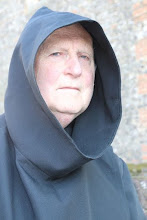With 101 countries represented, this event was a sell-out this year. Web 2.0 was a pervasive theme and I felt was reaching a critical mass position.
Jimmy Wales (founder of Wikipedia) as the first keynopte speaker was inspiring. He felt he was like a "Red Cross for information" as Wikipedia was open source with no chance of being sold to Google! Funded by small donations it was not dependent on advertisments. Its popularity is becoming worldwide and is even the 14th most popular web site in Iran. He spoke enthusiastically of Wikia, which is encouraging the creation of special interest wikis, (e.g. Muppet Wiki)with over 3000 topics so far in 66 languages. This is like the long tail going onto the web and is obviously being created by enthusiasts.
Interestingly he said that he would not expect students to be citing Encyclopedia Britannica any more than Wikipedia in their academic work. Encyclopedias are not original research! He commended the use of Wikipedia in Information Literacy teaching "not as good as a book, but better than Facebook". Remember Wikipedia is a general interest encyclopedia, not an academic journal.
He doesn't believe librarians will disappear either :"Everybody has jokes, but we still have comedians!" So that's my calling!!
It was a privilege to see and hear Stephen Abram (Sirsi-Dynix)"Library 2.0 - Fact or Fiction"- this was very much as he gave at Internet Librarian with some whizzy slides and provocative future gazing. He also showed "Here comes another bubble" a very enjoyable YouTube video about Web 2.0 fads. A few points which stay with me :
We have to create effective experience everywhere users have needs.
How do we meet them instead of telling them what we want to tell them?
Are we ready for dealing with a 15 year old who pays fines via an avatar in SL?
Teach success and knowledge managemnent rather than Information Literacy.
Our transactions with students should all add something to their experience.
David Nicholas (University College, London) spoke about the SuperBook project : a few points that stick in my consciousness - 3.5 minutes found to be the common time frame for use of the e-books on the survey, with no real evidence of the prevalence long reading sessions. Importance of power browsing.
On Thursday I moderated a session on "Embracing end user behaviours for better service provision" : this included an interesting presentations from OCLC researchers Lynn Connaway, Jasmine de Gaia and Marie L.Radford, and "Observing student researchers in their native habitat" a ProQuest survey by John Law.
Final thoughts : as the profession tries to meet the google generation and therefore becomes Web 2.0 savvy we may become more like thge Web generation. There is also evidence that the silver-surfers (I havent quite reached them yet..) are spending more time on the Web than the Web generation. Guess this means that the picture is getting more complex (not just Web generation, baby-boomers, screenagers etc in categories) and that we should be among the vanguard.
Tuesday, 11 December 2007
Subscribe to:
Post Comments (Atom)


1 comment:
I hope that conference might have been very informative. I had a great experience by being a part of the Cloudslam Conference, which was held online april 2009.
Post a Comment